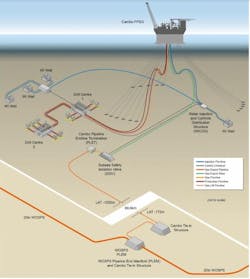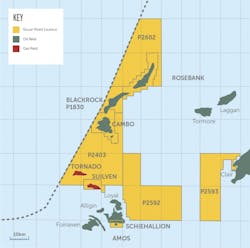Offshore staff
ABERDEEN, UK – Shell has decided not to pursue investment for the time being in the proposed Cambo oil field development west of Shetland.
Cambo is one of the UK’s largest undeveloped offshore fields, but the project has drawn opposition from environmental lobby groups and the Scottish government.
Jonathan Roger, CEO of operator Siccar Point Energy, said: “Whilst we are disappointed at Shell’s change of position, we remain confident about the qualities of a project that will not only create over 1,000 direct jobs as well as thousands more in the supply chain, but also help ease the UK’s transition to a low carbon future through responsibly produced domestic oil instead of becoming even more dependent on imports, with a relatively higher carbon intensity.
“We will continue to engage with the UK government and wider stakeholders on the future development of Cambo.”
The company said the partners had performed comprehensive due diligence and assurance, stakeholder and regulatory consultation.
Cambo, it added, could deliver up to 170 MMboe during its estimated 25-year operational life, along with 53.5 bcf, sufficient to power 1.5 million homes in the UK for a year.
The company is now in talks with its contractors, the supply chain, and others to review options for the development.
Earlier this year the OGA conducted a Net Zero Stewardship Expectation review to support the field development plan. According to Siccar Point, from start-up its emissions should be on average 50% lower than from existing fields and the facilities will be constructed to accommodate electrification supplied via renewable energy, once a local solution emerges.
Cambo has also undergone three rounds of environmental statement consultations and consulted wide ranging stakeholders.
Jenny Stanning, Oil and Gas UK’s external relations director, said: “This is a commercial decision between partners but doesn’t change the facts that the UK will continue to need new oil and gas projects if we are to protect security of supply, avoid increasing reliance on imports and support jobs.
“However, we know that to deliver the transition to a lower carbon future, investor confidence remains essential. Gas and oil has a critical role to play in the nation’s future energy supply and we will continue to work with governments, industry, and politicians of all parties to make this case.”
12/06/2021




